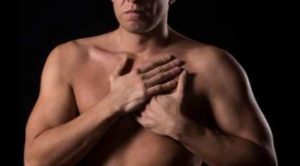
Have you ever felt a sudden twitching pain in the chest while breathing? Does the pain make it difficult to breathe? According to Dr G Sneha, Consultant General Medicine, CARE Hospitals, Banjara Hills, Hyderabad , this could be due to strained intercostal muscles, caused by heavy lifting.
While mild intercostal muscle strains heal within a few days, moderate strains may take 3-7 weeks to heal. However, severe muscle strains can take longer to heal. But what is intercostal muscle strain and why does it occur?
Understanding Intercostal Muscle Strain
“Intercostal muscle strains refer to injuries or tears in the muscles that are located between the ribs, known as intercostal muscles,” Dr Sneha explained, adding, “These muscles help with the breathing process by assisting in the expansion and contraction of the chest during inhalation and exhalation.”
Muscle Soreness Vs Pain: How To Differentiate
According to her, intercostal muscle strains typically occur due to sudden or repetitive movements that overstretch or tear these muscles, causing pain and discomfort.
Heavy overhead lifting, a direct blow to the rib cage, twisting the torso too much, prolonged overhead reaching, can all trigger the muscle strain, as per Medical News Today.
Other Factors That Lead To Chest Pain While Breathing
Besides intercostal muscle strains, other factors can also contribute to chest pain while breathing. This includes:
- Intense physical activity, including heavy lifting, leading to rib fractures or bruising
- Pleurisy or inflammation of the pleura, which is the thin lining around the lungs and inside the chest wall, often caused by infections, injury, or certain medical conditions
- Inflammation or infection in the lungs, such as pneumonia that worsens with breathing due to the already compromised lung function
- A pulmonary embolism, which occurs when a blood clot (usually from the legs) travels to the lungs and blocks a pulmonary artery
- Conditions like angina or a heart attack can cause chest pain, which may worsen with breathing
How To Recognise Intercostal Muscle Strains
Some of the specific signs of intercostal muscle strains, which can help distinguish it from other conditions, include:
- Severe and sudden pain, particularly if caused by a blow to the chest or back
- Worsening pain after repetitive movement, such as swimming, or other physical exercises
- Stiffness and tension in muscles
- Sharp upper back and rib pain
- Worsening pain when coughing, sneezing, or breathing in deeply
- Pain in the area between the ribs
When To Seek Help
Dr Sneha warned against ignoring chest pain that especially occurs during or after heavy lifting.
“If you experience persistent or severe chest pain, especially if associated with shortness of breath, dizziness, or other concerning symptoms, it is essential to seek medical evaluation and treatment promptly,” she added. According to the American Heart Association (AHA), all of these can be symptoms of a heart attack, which essentially requires immediate attention.




 Driving Naari Programme launched in Chandigarh
Driving Naari Programme launched in Chandigarh






























